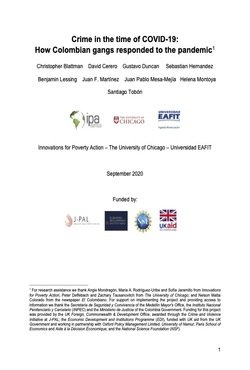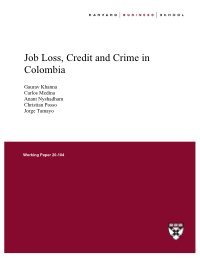By Angélica Durán-Martínez
Objective/context: After the paramilitary demobilization in Colombia, Cali and Medellín—major cities with a long history of political and criminal violence—saw a decline in violence despite the continuing operation of criminal groups. Yet, while Cali remained more violent than the national average, with criminal groups displaying less ability to regulate local affairs and security, Medellín became less violent than the national average and criminal groups engaged in more intensive governance. Methodology: I compare these cities using case studies constructed through fieldwork and interviews with security officials, NGO and social leaders, and former members of groups, drawing on my long-term, ongoing research engagement in both locations. Conclusions: The contrast between these cities exemplifies varied manifestations of post-conflict criminality. I argue that this variation in criminal governance is connected to the wartime balance of power, specifically, the level of territorial control and political connections armed groups had before the demobilization. Where control and political connections of paramilitary before demobilization were high, post-conflict crime groups were more likely to engage in governance behaviors. By contrast, disputed territories during wartime were likely to experience less criminal governance. Drawing on path dependence ideas, I introduce an overlooked mechanism through which wartime orders affect criminal behavior: learning processes inside and outside criminal groups. Originality: I show that to fully understand post-conflict criminality, it is crucial to consider armed actors peripherally involved in the war but essential for territorial control, whereas to understand criminal governance, the mid-ranks of armed groups and learning processes are crucial.
Revista Colombia Internacional ,2024. 35p.










